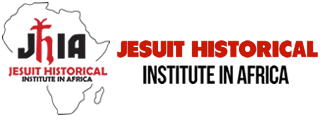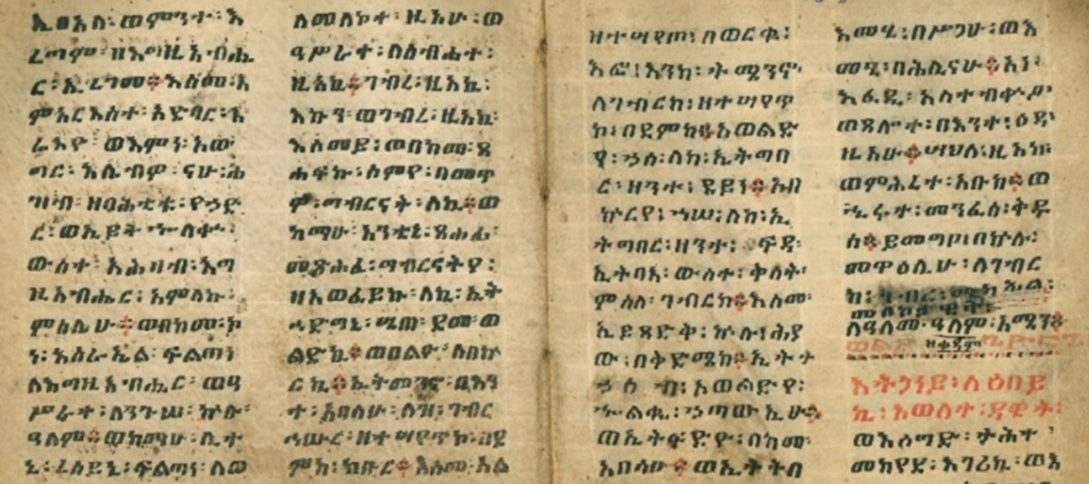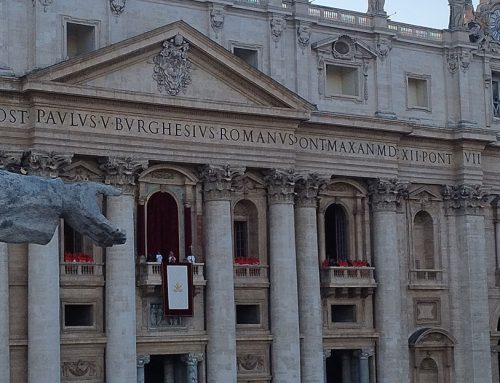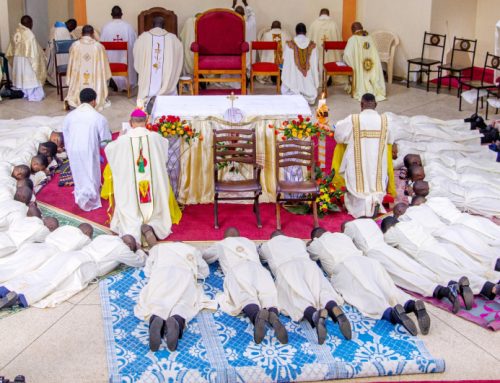Introduction
The Jesuit Historical Institute in Africa (JHIA), located in Nairobi, Kenya, serves as a key academic and archival hub dedicated to preserving ecclesiastical, cultural, and socio-political histories across the African continent. In recent years, the institute has recognized that preserving history involves not only storing records but also enabling meaningful access and dynamic scholarly exchange. This insight led to a shift toward a more structured, technology-driven knowledge management system aimed at connecting researchers, institutions, and historical data across the globe.
A Knowledge Management Turn: JHIA’s Digital Knowledge Initiative
Knowledge Management (KM) involves systematically capturing, organizing, storing, and sharing knowledge to create value and achieve organizational goals (Dalkir, 2017). For the Jesuit Historical Institute in Africa (JHIA), the growing global interest in African ecclesiastical history has exposed challenges common to many knowledge-driven organizations; geographical fragmentation, limited digital infrastructure, and knowledge silos. These barriers slowed scholarly interaction, created duplication of effort, and hindered timely access to archives. Recognizing that preserving memory in the 21st century requires more than safeguarding records, JHIA sought to build a collaborative ecosystem where dialogue, interpretation, and shared custodianship could thrive.
In 2020, JHIA launched its Digital Knowledge Initiative (DKI) to address these challenges. The DKI established a living knowledge network rather than a static archive. Through thematic forums, real-time collaboration tools, cloud-based access, and integrated metadata frameworks, researchers and archivists worldwide can now co-develop interpretations, annotate records, and share insights across borders. The adoption of a community-of-practice model further strengthened this effort, with working groups focused on themes such as missionary correspondence, oral histories, and displaced communities, fostering trust and collective stewardship of African memory.
Alongside DKI, JHIA has embraced complementary strategies to enhance knowledge sharing. These include knowledge-sharing protocols supported by digital tools like Microsoft Teams, Zoom, Google Meet, and Notion; training and development programs that emphasize onboarding, mentorship, and peer learning; and even leveraging management tools such as Minute7 for efficient time and resource tracking. Together, these practices illustrate how JHIA is reshaping itself into a dynamic knowledge hub that supports both scholarly collaboration and institutional learning.
Evaluating Strategic Repositioning through the Lens of Knowledge Management.
The Jesuit Historical Institute in Africa (JHIA) is strategically repositioning itself into a knowledge-driven enterprise by placing knowledge at the center of its operations.
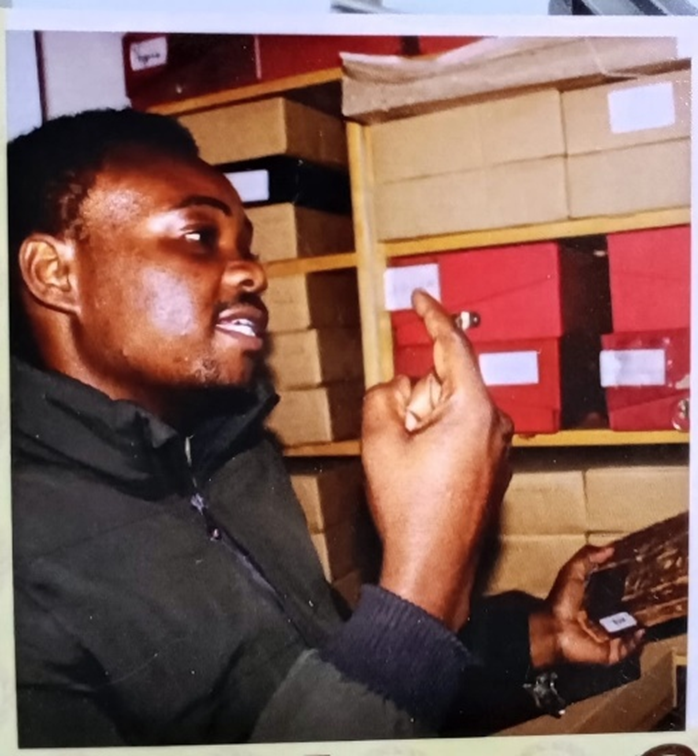 This transformation emphasizes staff expertise as the Institute’s most valuable resource and promotes the conversion of tacit knowledge into reusable institutional memory through initiatives such as the Digital Knowledge Initiative (DKI). By fostering a culture of knowledge sharing, supported by leadership and incentives, JHIA is shifting from private knowledge ownership to collective growth.
This transformation emphasizes staff expertise as the Institute’s most valuable resource and promotes the conversion of tacit knowledge into reusable institutional memory through initiatives such as the Digital Knowledge Initiative (DKI). By fostering a culture of knowledge sharing, supported by leadership and incentives, JHIA is shifting from private knowledge ownership to collective growth.
Technological infrastructure underpins this change, enabling real-time, cross-border collaboration and embedding knowledge management into daily operations across research, client service, and planning. Continuous learning and innovation are encouraged through experimentation and the tailoring of solutions to diverse archival needs. To ensure impact, JHIA measures outcomes such as faster problem resolution, improved client satisfaction, and greater engagement with digital platforms like DSpace, Thesis Bank, and AtoM. This strategic repositioning, positions JHIA as a landmark case in knowledge management, evolving beyond transactional operations into a solution- and relationship-driven hub.
Organizational Change, Cultural Shift, and Technological Investment
The Jesuit Historical Institute in Africa (JHIA) is embracing emerging technologies such as AI, blockchain, and machine learning to enhance archival management and knowledge sharing (Yakel, 2019). This transformation involves significant organizational and cultural changes, shifting from custodianship to collaboration. Staff are trained in digital literacy, data curation, and ethical practices, supported by recognition schemes that encourage contributions to the Digital Knowledge Initiative (DKI). Technological investments include open-source archival systems (D’Space, Thesis Bank, AtoM), integration with ORCID, and adherence to FAIR principles for metadata. Together, these initiatives position JHIA as a knowledge hub where innovation, inclusivity, and collaboration define its organizational identity.
Outcomes and Societal Impact
By 2024, the Jesuit Historical Institute in Africa (JHIA) had achieved notable results from its knowledge-driven initiatives. The Institute’s collections gained global visibility, research collaborations expanded; especially among African and diaspora scholars, and response times to reference requests improved. International recognition followed, highlighting JHIA’s innovative archival practices.
Culturally, the Institute shifted from viewing “knowledge as possession” to embracing “knowledge as mission,” fostering shared insight, scholarly debate, and digital access. Through the Digital Knowledge Initiative (DKI), JHIA enhanced research collaboration, accelerated service delivery, broadened the interpretation of archives, and expanded inclusion of oral histories and community records. Ultimately, JHIA has repositioned itself as both a guardian of memory and a dynamic platform for collective historical engagement.
Ongoing Challenges and Adaptation
Despite its progress, the Jesuit Historical Institute in Africa (JHIA) continues to face challenges in its digital transformation journey. Some traditionalist scholars remain reluctant to embrace open digital collaboration, while disparities in internet bandwidth and infrastructure across regions limit equitable access. Concerns about the long-term sustainability of digital platforms, intellectual property rights, and ensuring academic rigor further complicate the process. The transition to a new content management system in 2025 briefly reduced engagement, underscoring the fragility of platform-dependent participation.
As Kotter (2012) reminds us, digital transformation is not only about technology but also about cultural change. Successful adaptation requires staff to embrace new tools, workflows, and mindsets, with change management playing a central role in sustaining progress. Recognizing this, JHIA’s leadership has remained steadfast, prioritizing continuous dialogue with stakeholders, ethical reflection on memory work, and the integration of marginalized sources such as community archives and oral histories. Through this commitment, JHIA demonstrates that resilience, cultural openness, and inclusivity are as vital as technological upgrades in shaping a sustainable knowledge future.
Conclusion
The Jesuit Historical Institute in Africa’s (JHIA) transformation illustrates how archival institutions can reposition themselves through strategic knowledge management. By embracing digital platforms such as the Digital Knowledge Initiative (DKI), integrating open-source systems, and adhering to FAIR principles, JHIA has enhanced access, fostered collaboration, and elevated its global visibility. More importantly, the shift from custodianship to collaboration and from “knowledge as possession” to “knowledge as mission” has allowed the Institute to reimagine its role as both a guardian of memory and a facilitator of shared scholarly dialogue.
Despite ongoing challenges; ranging from uneven digital infrastructure to sustainability concerns and cultural resistance. JHIA’s commitment to resilience, inclusivity, and continuous learning ensures that it remains a leader in archival innovation. Its journey demonstrates that when knowledge is treated as a strategic asset, archives move beyond preservation to become dynamic platforms for engagement, innovation, and collective historical understanding.
By Philip Opiyo
Librarian – JHIA
